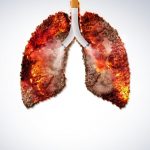
Mary Butler explores a recent randomised controlled trial of probiotic formulations for patients with bipolar disorder or schizophrenia spectrum disorder.
[read the full story...]
Mary Butler explores a recent randomised controlled trial of probiotic formulations for patients with bipolar disorder or schizophrenia spectrum disorder.
[read the full story...]
Gemma Taylor discusses new research on the effects of smoking cessation treatment options for people with past or current major depressive disorder.
[read the full story...]
Nicholas Donnelly considers a recent Brazilian randomised controlled trial of Acceptance and Commitment Therapy versus Cognitive Behavioural Therapy for insomnia.
[read the full story...]
Kirsten Lawson and Douglas Badenoch review the new randomised controlled trial by Cleare et al, published today in The Lancet Psychiatry, directly comparing the clinical and cost effectiveness of lithium and quetiapine as augmentation treatments for patients with ‘treatment resistant depression’.
[read the full story...]
Julian Mutz discusses the results of a new 10-week RCT assessing home-based brain stimulation for depression, which suggests that tDCS may be a safe, acceptable and efficacious treatment for moderate depression.
[read the full story...]
Shuichi Suetani blogs a new study published today in The Lancet Psychiatry, which suggests that those patients who might benefit most from evidence-based guidance are the least represented in clinical trials about ADHD medication. Is it time to reconsider the value we place on RCTs when they do not include the vast majority of people who need help?
[read the full story...]
David Mongan reports on a recent trial of omega-3 supplementation for the prevention of psychosis in people at ultra-high risk, which finds no evidence of a positive effect. He reflects on these findings and considers what’s next for the field.
[read the full story...]
Nicola Rizzo Pesci and Andrea Cipriani summarise findings from the EMERGENT-2 trial spotlighting a promising new drug treatment for schizophrenia.
[read the full story...]
Dona Matthews summarises a recent trial which suggests that Acceptance and Commitment Therapy can maintain or improve quality of life for people with early stage motor neuron disease.
[read the full story...]
Kirsten Lawson summarises the ECoWeB PROMOTE and PREVENT trials in relation to self-helps apps for promoting wellbeing and preventing mental ill health among young adults.
[read the full story...]